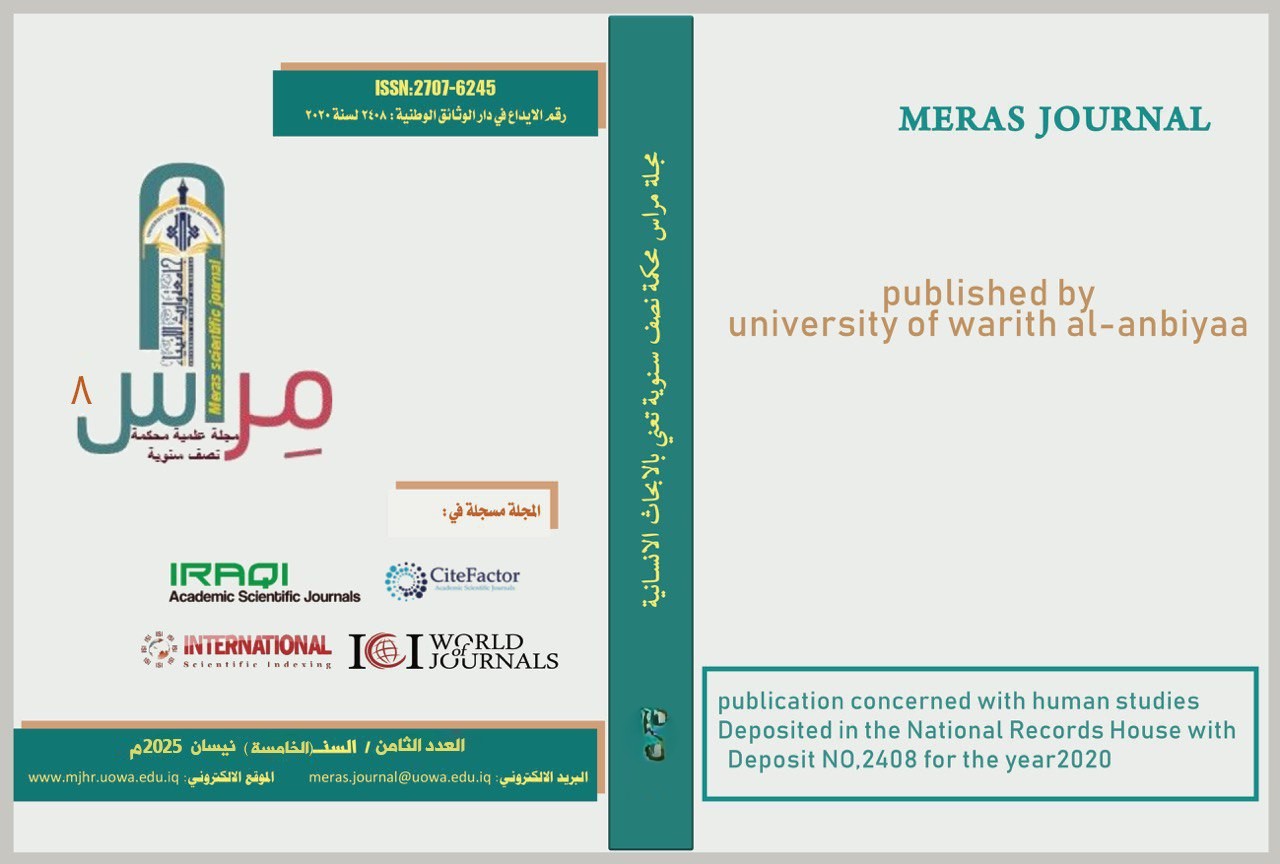Interpretation of the Prepositions "Fi" (في) and "Alā" (على) in the Qur'anic Context in Light of Cognitive Semantics
Keywords:
Qur'anic context, Cognitive semantics, Interpretation of prepositions, Fi, AlaAbstract
This research addresses the interpretation of the prepositions "fi" (في) and "ala" (على) and their prominent role in shaping meanings and interpreting Qur'anic texts, relying on the descriptive, analytical, and comparative methodology. It explains the multiple meanings of these prepositions based on different linguistic schools, with a focus on the views of Basran and Kufan scholars. The study illustrates how the meanings of verbs change with the use of different prepositions. Additionally, it discusses the distinction between the preposition "fi," which denotes containment, and "ala," which indicates superiority or elevation, highlighting that their usage in the Qur'an carries precise connotations that must be understood within the context of the Qur'anic text. The research also applies cognitive semantics to analyze Qur'anic examples, demonstrating how cognitive semantics can deepen the understanding of the meaning of prepositions in the Qur'anic text. The study emphasizes the importance of preserving prepositions as they appeared in the Qur'anic text, without resorting to replacing them with other prepositions, concluding that such changes can compromise the text's accurate reading and its profound rhetorical meanings.





